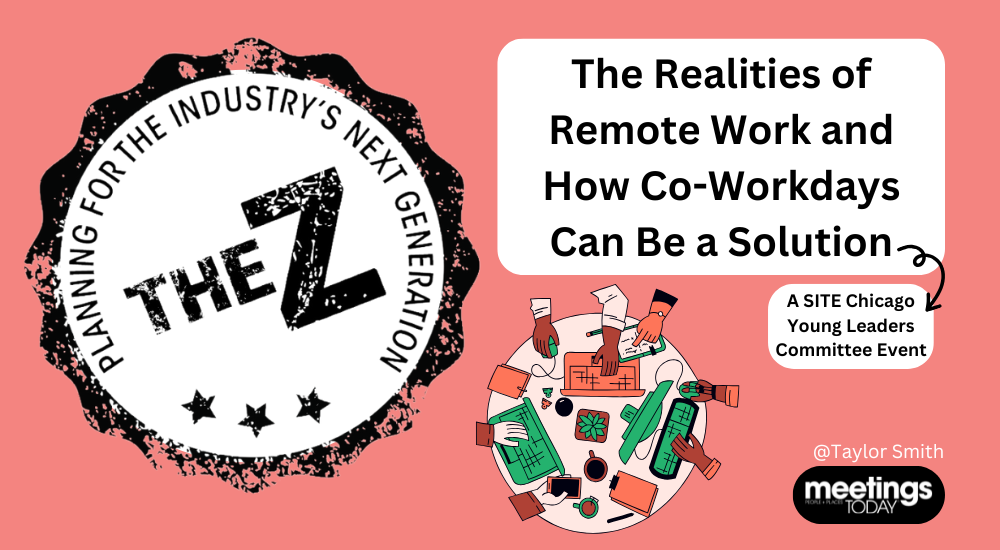More than half of my generation lost their jobs this year.
A recent survey by Intelligent discovered that six in 10 companies had to fire a recent college grad hire in 2024, and 79% reported they had to place at least some underperforming hires on performance improvement plans.
The No. 1 reason these Gen Z employees haven’t been successful, according to Intelligent, is because of their “lack of motivation or initiative.” Additional reasons include “lack of professionalism,” “poor communication skills” and “lack of relevant work experience.”
But how can we expect Gen Zers to come to the table with motivation, professionalism and work experience when 82% of them have never worked in an office environment full-time or received the hands-on learning opportunities those environments foster?
Most Gen Z respondents (92%) to an Indeed survey said they feel like they’re missing out on the traditional work experience, and 85% are worried they’re at a disadvantage for developing soft skills as a result of not being a part of an in-person work environment.
What can we do as meetings industry professionals—many of whom are in remote or hybrid work environments—to help Gen Z get the in-person workplace experience they need to be confident employees?
The SITE Chicago Young Leaders Committee may have found a solution.
The Realities of Remote Work
Since I started working for Meetings Today in May 2022, I can count the times I’ve been to HQ on one hand.
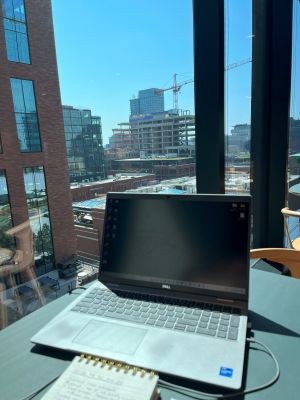
My commute to work is 18 stairs from my bedroom to my office in my parents’ basement. I get ready for work every morning next to my 14-year-old sister as she gets ready for school. I take my lunch breaks with my dad and consider my dogs to be my closest coworkers. (They come to the office with me every day!)
For a lot of Gen Zers, being in a situation like mine takes them back to when they went to school on Zoom—cameras off, pajamas on and a TV show capturing most of our attention playing in the background.
Most of us were completely unplugged, disengaged and struggling to find the motivation to put in the effort to succeed in our classes—and many took that mindset with us into our remote jobs post-graduation.
Nearly 20% of managers say their Gen Z employees are late to work and 19% say Gen Z doesn’t dress professionally. Another 19% say Gen Zers don’t use appropriate language for work, 18% say they are late to meetings and 15% report Gen Z employees turn assignments in late. (Sounds like my college professors to me!)
Gen Z employees struggle with communication, teamwork and collaboration, staying motivated and showing initiative, but for years, we haven’t had the opportunity to experience what that looks like in the workplace, and remote and hybrid positions don’t really give us that experience either.
The SITE Chicago Young Leaders Committee made facing this problem a priority this year. If no one else was going to bring young professionals together in a working environment for them to learn, collaborate and develop soft skills, the SITE Chicago Young Leaders Committee would find a way.
[Related: The Z: Why It’s Important to Talk Through Transitions, Personally and Professionally]
A SITE Young Leader’s Take on Working Styles
Brittany Cerrillos, program coordinator with Motivation Excellence and co-vice president of SITE Chicago’s Young Leaders Committee, has had the unique opportunity of working in all three different work environments—remote, hybrid and in person.
For Cerrillos and where she currently is in her career, a hybrid work environment is what’s best for her. She appreciates the flexibility of working from home, “but it is important to still feel connected to your employees, especially if you’re newer to the company,” she said.
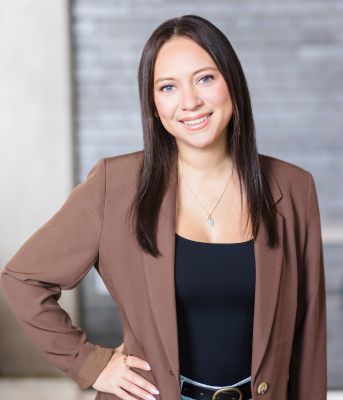
“Working in person is a great opportunity to build those relationships and understand how the company works, figure out the other roles and how they all come together, seeing opportunities for growth within the company,” Cerrillos said. “You develop a better understanding of the company when you see what everyone else is working on. You build rapport with your peers, and that plays a huge part in professional development that a lot of young professionals don’t get to experience anymore.”
When Cerrillos took on the role of co-VP of SITE Chicago’s Young Leaders Committee, her goal was to create a community for young leaders to connect not just virtually, but in person.
“I think, as a young leader, it’s so much harder for us to build the type of relationships where you can reach out to folks and feel like you can ask for favors or for support in your career,” she said. “Building that community is so important, and young leaders don’t always have those opportunities. So, a step I wanted to take was to essentially start building that environment and fostering a community within young leaders where those relationships could thrive.”
Cerrillos noted that not only did she want to foster an environment in which those relationships could form, but she also wanted to make sure the event was productive, giving young leaders a taste of what it feels like to work in a room surrounded by others who are also ticking items off their to-do lists.
“Seeing people work is so motivating,” Cerrillos said. “If you see other people working, it’s like, ‘Alright, I’m going to work, too!’, but if you’re the only one—if you’re at home and working by yourself—you’re not feeding off of that energy from others that’s motivating you to get your work done. You have to be very disciplined and fully invested in creating your own motivational energy, and if you’re an extrovert, that can be very hard to do.”
[Related: The Z: 6 Tips to Make Networking Less Awkward]
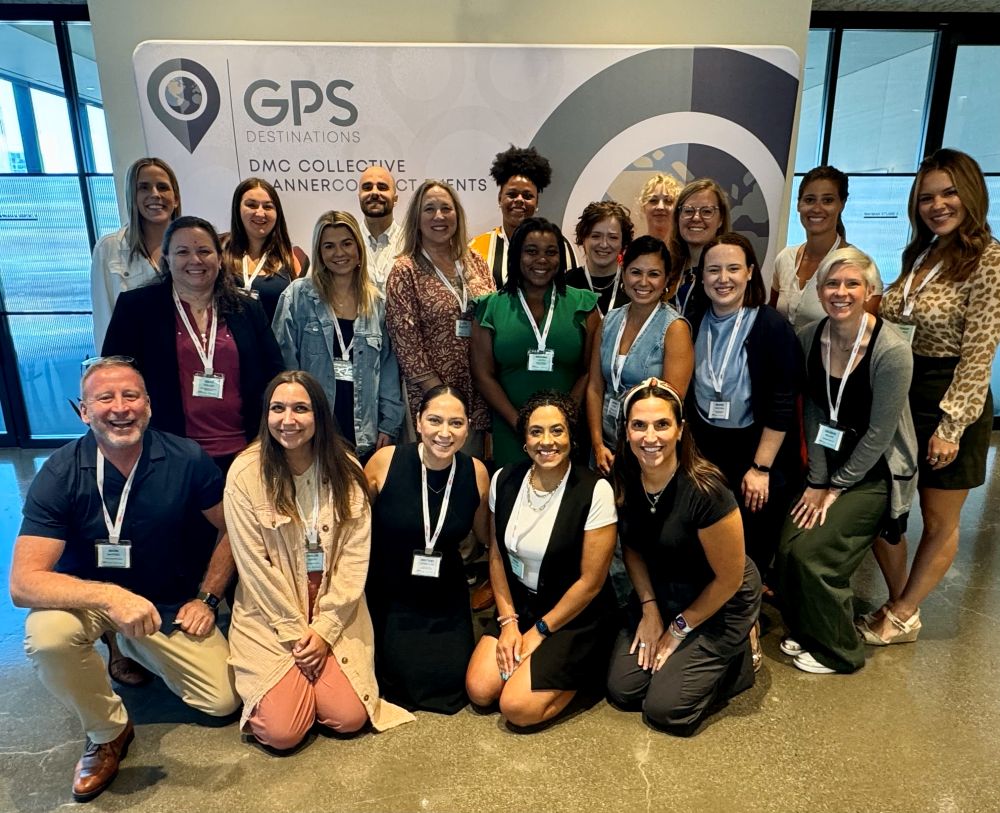
SITE Chicago Young Leaders Co-Workday
After a few back-and-forth conversations with the SITE Chicago Young Leaders Committee, Cerrillos had figured out a game plan for bringing young leaders together to show them the power of in-person work environments and how motivational they can be—a co-workday event in the city.
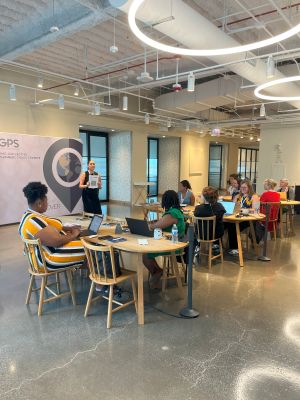
On August 26, SITE Chicago partnered with GPS Destinations and Convene to host 21 young leaders for the committee’s first-ever co-workday event in the city’s booming Fulton Market District.
SITE Chicago’s Young Leaders Committee invited the chapter's young leaders to experience a new working environment at Convene’s coworking space, with multiple seating arrangements for group collaboration, semi-private areas to take calls, breakout rooms for general meetings and, of course, enough charging stations to keep us all powered throughout the day.
“We’re still in an environment that motivates people to get their work done, but we’re eliminating those distractions that come alongside remote work, like the mailman delivering a package and ringing the doorbell, or kids coming home from school and asking their parents a bunch of questions,” Cerrillos said.
A second goal for Cerrillos was to make the event educational. The semi-structured co-workday featured three optional breakout sessions focused on networking, health and wellness and diversity, equity, inclusion and belonging (DEIB), allowing attendees the flexibility of choosing which topics resonated with them most to create a workday tailored specifically to their needs and interests.
“I wanted to ensure that the young leaders’ voices were heard in ways they felt worked best for them,” Cerrillos said. “I wanted there to be a takeaway for young leaders in every breakout session that relates to their work experience, and I wanted them to feel like they left with new solutions and tools for navigating their personal work environments.”
The day wrapped up with a networking happy hour at Punch Bowl Social—and lots of young leaders who were eager to stay connected and work together again one day soon.
[Related: The Z: How to Tell Your Story to Make Yourself an Unforgettable Connection]
Co-Workday Takeaways
As a member of SITE Chicago’s Young Leaders Committee, I asked Cerrillos how we could turn this co-workday into a learning experience for us, too. We decided to create a Google form and had young leaders scan a QR code to tell us about their thoughts on working styles and the struggles they’ve faced in their career journeys.
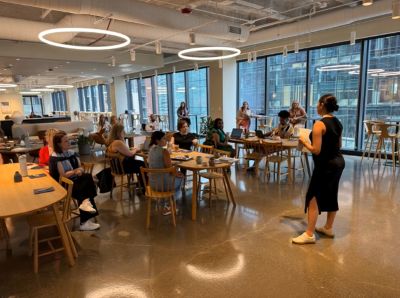
Nearly 47% of respondents have been working in a professional environment for less than five years and 73% had fewer than 10 years of professional experience. Out of all 15 respondents, only one worked in person, 67% were hybrid and the rest were fully remote.
When asked if they think remote work environments can have a negative impact on young professionals and their career development, 33% said yes and the remainder said maybe, as it depends on the type of employee you are and how much effort you’re willing to put into staying connected.
No one said remote work environments don’t have a negative impact on young professionals and their career development.
When asked if they would take advantage of more co-workday opportunities, 100% of respondents said yes and 100% agreed that remote companies should consider or prioritize offering co-workday opportunities for employees.
Hmm…maybe SITE Chicago’s Young Leaders Committee is onto something!
Here’s what else these young leaders had to say.
If you’ve worked in more than one working environment, which style has been your favorite and why?
“I prefer a hybrid work format. I enjoy collaborating with colleagues on in-office days and get to benefit from building my own structure and environment on our at-home days,” said Caroline Morrison, coordinator at SDI Meetings & Incentives. “Having a (home) workspace fully dedicated to myself and my own personal work style has allowed me to tap into a level of focused, individual productivity I would not be able achieve in a shared space.”
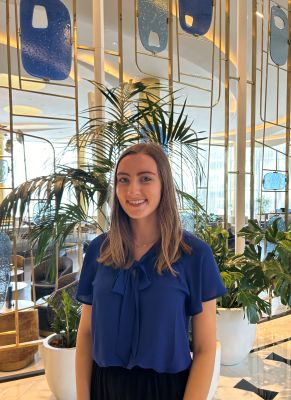
“My favorite environment is hybrid! I love having the flexibility to work from the office or at home,” said Bridget Radzicki, meeting and event planner at Destination Consultants. “As a new professional just starting their career, I find value in being in person at the office to make connections with my coworkers. Alternatively, when I have a project that requires deep focus or I am traveling, it is great to be able to work from my location of choice.”
How do you feel different work environments affect young professionals' career development?
“I think different work environments are totally subjective to people and their different personalities and how they are most productive,” said Conley Morris, event manager at CSI DMC. “I LOVE to be surrounded by people and find myself gaining energy and inspiration working in person with people, especially if we are in the same or a similar industry. I love being able to have easy access to pick someone's mind about a quick question or bounce ideas off each other. I know multiple people who find being surrounded by others super distracting and they are more efficient when they are alone. For me, it's easy to re-wire and re-center my train of thought when pulled away from something, so I find the benefits of working in-person to outweigh the flexibility of working fully remote.”
“Of course, work environments are where you meet people. If you’re not pushing yourself to engage, it’s very easy to fall into an antisocial bubble which harms personal life and professional development,” said Maggie Sheehan, account coordinator at SDI Meetings & Incentives. “However, working remotely can give a young person freedom to figure out how they best assimilate into adulthood, as well as put a little money back into their pockets at such an expensive time.”
The reality is there’s no better way to foster relationships, develop professional skills and understand your company and industry than turning to those who work alongside you for guidance, and right now, most Gen Z employees don’t have the opportunity to do that.
Maybe sometimes, instead of looking ahead, it’s best to take a few steps back and revisit where we started.
Logging out with love,
Taylor
Have a question about Gen Z or a topic you’d like to learn more about? Share your thoughts with Taylor at taylor.smith@meetingstoday.com, on Instagram at @tay__writes or on X at @taywrites.
Mission Statement: "The Z: Planning for the Industry’s Next Generation" is a Meetings Today column discussing the meetings and events industry’s newest and youngest members—the incoming Generation Z. Written by Meetings Today’s Taylor Smith, a member of Gen Z herself, The Z explores how to welcome, work with, understand and plan for the industry’s next wave of professionals while serving as a guide for members of Gen Z themselves, planners and attendees alike.
Read more from "The Z: Planning for the Industry’s Next Generation."



